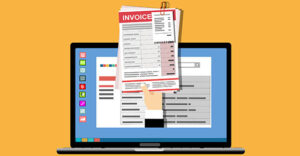Both public and private companies can elect to use “pushdown” accounting when there’s a merger, acquisition or other change-in-control event. What does this mean — and when might this alternative reporting method be advantageous?
Understanding your options
Pushdown accounting refers to the practice of adjusting an acquired company’s standalone financial statements to reflect the acquirer’s accounting basis rather than the target’s historical costs. Typically, this means stepping up the target’s net assets to fair value and, to the extent the purchase price exceeds fair value, recognizing the excess as goodwill.
In 2014, the Financial Accounting Standards Board (FASB) issued Accounting Standards Update (ASU) No. 2014-17, Business Combinations (Topic 805): Pushdown Accounting (a consensus of the FASB Emerging Issues Task Force). The updated guidance made pushdown accounting optional for all companies.
Reporting post-M&A performance
Whether pushdown accounting is appropriate depends on a company’s particular circumstances. For some companies, there may be advantages to reporting assets and liabilities at fair value and adopting consistent accounting policies for both the parent and subsidiary. Other companies may prefer not to apply pushdown accounting to avoid the negative impact on earnings, often associated with a step-up to fair value.
Previously, U.S. Generally Accepted Accounting Principles (GAAP) provided little guidance on when pushdown accounting might be appropriate. For public companies, SEC guidance generally prohibited pushdown accounting unless the acquirer obtained at least an 80% interest in the target, and it generally required pushdown accounting when the acquirer’s interest reached 95%. The SEC has rescinded portions of its pushdown accounting guidance, bringing it in line with the FASB’s new standard.
Weighing your options
For each individual change-in-control event, acquired companies must evaluate the option to apply pushdown accounting. And once pushdown accounting is applied, the election is irrevocable. Acquired companies that apply pushdown accounting in their standalone financial statements are required to include disclosures in the current reporting period to help users evaluate its effects. Contact our A&A specialists for help deciding whether to elect this reporting option.
© 2016





